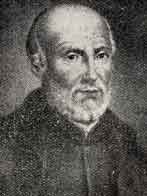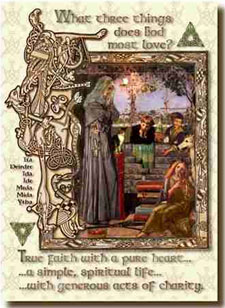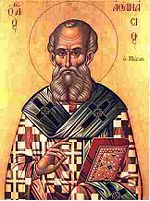Ghandi on Jesus
Gandhi's interest in Jesus began early in his life. In England, sent to
learn law in l888, the young Hindu was persuaded to read the Bible even
before he had studied the Bhagavad Gita and other Indian classics. The
Sermon on the Mount, he said, "went straight to my heart": "When I read
in the Sermon on the Mount such passages as...'whoever smite thee on
thy cheek turn to him the other also' I was simply overjoyed."
When i survey the Wondrous Cross & Pillar of the Cloud were among Ghandi's favorite hymns. He referred to the lyrics of Wondrous Cross frequently in His writings on prayer. It was sung at his request in private services as he ended rigorous fasts in 1924 & 1948.
Below are some of Ghandi's own words regarding Jesus;
"The example of Jesus
suffering is a factor in the composition of my un-dying faith in
non-violence. What then does Jesus mean to me? To me, He was one of the
greatest teachers humanity has ever had." For Gandhi, to say that Jesus
was the only begotten son of God was to say that "in Jesus' own life was
the key of his nearness to God, that he expressed as no other could,
the spirit and will of God... I do believe it... If I did not believe it, I should be a skeptic, and
to be a skeptic is to live a life that is empty and lacking moral
content. Or, what is the same thing, to condemn the human race to a
negative end."
"Of all the things I have
read what remained with me forever was that Jesus came almost to give a
new law - not an eye for an eye but to receive two blows when only one
was given, and to go two miles when they were asked to go one. I came to
see that the Sermon on the Mount was the whole of Christianity for him
who wanted to live a Christian life. It is that sermon that has endeared
Jesus to me."
"The message of Jesus as I
understand it," said Gandhi, "is contained in the Sermon on the Mount
unadulterated and taken as a whole... If then I had to face only the
Sermon on the Mount and my own interpretation of it, I should not
hesitate to say, 'Oh, yes, I am a Christian.' But negatively I can tell
you that in my humble opinion, what passes as Christianity is a negation
of the Sermon on the Mount... I am speaking of the Christian belief, of
Christianity as it is understood in the west."
"I refuse to believe that
there not exists or has ever existed a person that has not made use of
his example to lessen his sins, even though he may have done so without
realising it. The lives of all have, in some greater or lesser degree,
been changed by His presence, His actions and the words spoken by His
divine voice... I believe that he belongs not solely to Christianity,
but to the entire world; to all races and people, it matters litle under
what flag, name or doctrine they may work, profess a faith or worship a
God inherited from their ancestors."
The opening is an excerpt from Immitastion of Christ by Harris Wofford, what follows are quotes from Ghandi on his relationship to Chnrist. the information about the hymns is taken from Ghandi's book of prayers.
Martin Luther King Jr. read Wofford's 1955 paper advocating Gandhian action in the civil
rights movement. Wofford became an adviser to King until his death.





















